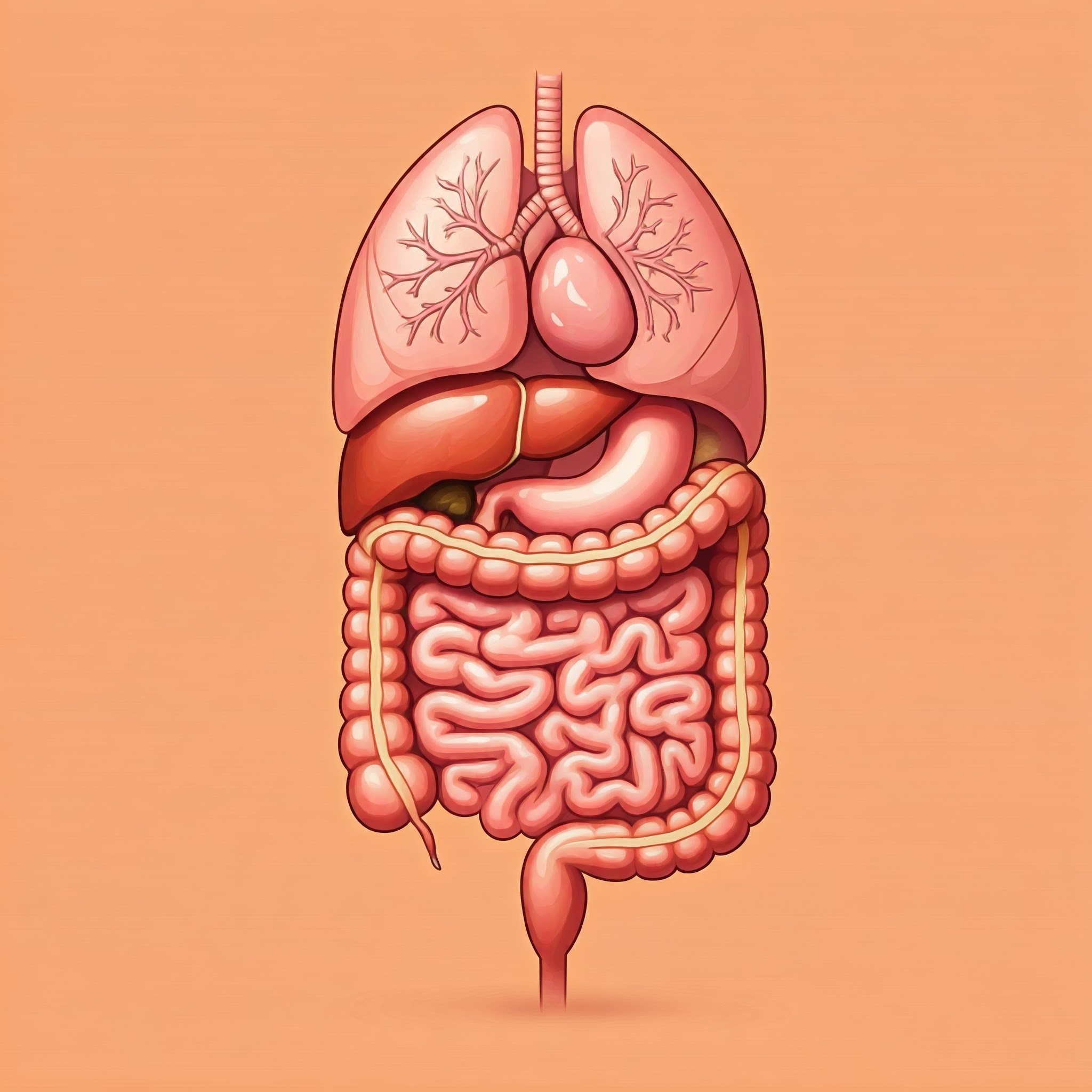The Gut-Hormone Connection: How a Healthy Gut Supports Balanced Hormones
Hormones play a crucial role in nearly every function of the body, influencing everything from weight management and energy levels to mood and fertility. When hormones are balanced, the body operates smoothly, however, if imbalanced this can lead to a wide range of issues, such as weight gain, tiredness, moodiness, and infertility.
Research shows that a healthy gut microbiome not only supports digestion, but also plays a significant role in regulating hormones like estrogen, cortisol, and insulin. Understanding the gut-hormone connection is essential for anyone looking to improve their hormonal health. By nurturing the gut with the right foods and lifestyle choices, it’s possible to naturally support your hormone production to live a balanced, healthier life.
What Is the Gut-Hormone Connection?
The gut and the endocrine system are closely linked through the gut-brain axis, a complex communication network that connects the gut, brain, and hormones (1). This bidirectional pathway allows the gut to influence hormone production and regulation and hormones to affect the gut. Key players in this connection are the trillions of microorganisms that make up the gut microbiome. These gut bacteria produce various metabolites that either support or disrupt hormone balance.
One of the primary ways the gut affects hormone balance is through estrogen metabolism. The gut microbiome, which consists of trillions of bacteria, is responsible for breaking down and eliminating excess estrogen. When the microbiome is imbalanced, a condition called dysbiosis can occur, leading to improper estrogen metabolism. This can result in the reabsorption of estrogen into the bloodstream, contributing to conditions like estrogen dominance (2). Estrogen dominance is associated with symptoms such as weight gain, mood swings, and an increased risk of hormonal disorders like polycystic ovary syndrome (PCOS) or endometriosis, as well as certain cancers, highlighting the importance of maintaining a healthy gut for hormonal balance.
Gut inflammation also directly impacts cortisol, the body’s primary stress hormone. Chronic inflammation in the gut can trigger elevated cortisol levels, leading to prolonged stress responses and fatigue. High cortisol levels over time can lead to issues such as fatigue, poor sleep, and weakened immune function, as well as exacerbating feelings of anxiety (3). This constant state of stress creates a vicious cycle, where gut inflammation raises cortisol, and elevated cortisol further disrupts gut health, worsening inflammation.
Another key area where gut health intersects with hormone regulation is in blood sugar control. The gut helps regulate insulin sensitivity by influencing how the body processes glucose. Poor gut health, often caused by an unhealthy diet or chronic inflammation, can impair the body’s ability to manage blood sugar levels effectively (4). This can lead to insulin resistance, which is a precursor to metabolic disorders such as type 2 diabetes. Maintaining a healthy gut is therefore essential for maintaining stable blood sugar levels and preventing metabolic imbalances that can disrupt overall hormone regulation.
What Should You Eat to Support this Connection?
Supporting your gut microbiome, the community of good bacteria living in your digestive tract is essential. Prebiotics and probiotics are your new besties. Prebiotic foods, such as onions, garlic, leeks, and bananas, provide fiber that nourishes your gut bacteria, while probiotic foods like yogurt, kefir, sauerkraut, and kimchi introduce beneficial bacteria into the gut. Fiber from vegetables, legumes, and whole grains also boosts digestion and promotes a thriving gut environment (5). We want our microbiome to be like a tropical rainforest filled with lush greenery and biodiversity.
Anti-inflammatory diets are the foundation of optimizing gut health. You can achieve this by eliminating common food triggers like gluten, dairy, sugar, alcohol, caffeine, and fatty foods. In the US, 36% of people experience lactose malabsorption and around 6% have gluten sensitivity (6 & 7). Common symptoms to understand whether you are sensitive include bloating, gas, and discomfort, further stressing the body and your hormonal imbalance. Similarly, excessive sugar intake spikes insulin levels and fuels inflammation, while alcohol and caffeine disrupt gut health by irritating the intestinal lining and impacting stress hormone regulation. Fatty, fried, and processed foods also promote inflammation, making it harder for the body to maintain hormonal balance.
PRO TIP: A food sensitivity test is always recommended to dial in your diet and confirm which foods you should and should not eat for optimal health, which is something we can do together.
The anti-inflammatory diet is also about eating more ant-inflammatory compounds. Colorful fruits and vegetables like berries, leafy greens, and cruciferous vegetables are packed with antioxidants that neutralize free radicals and reduce oxidative stress and inflammation. Turmeric and ginger also contain compounds that are actively anti-inflammatory compounds, while high-fiber foods like legumes and whole grains support healthy digestion.
PRO TIP: Key nutrients to get into your diet ASAP include Omega-3 fatty acids, magnesium, and B vitamins. Omega-3s, found in flaxseeds, chia seeds, and walnuts reduce inflammation and support hormone production (8). Magnesium, abundant in leafy greens, nuts, and seeds regulates our stress hormones and supports thyroid function. B vitamins, especially B6, B12, and folate, are crucial for energy and support a happier mood, reducing the impact of excess cortisol. If you are deficient in any of these micronutrients you likely will experience symptoms of deficiency, which can affect everything from your menstrual cycle to your energy level.
PRO TIP: We can conduct a blood panel to understand where you are deficient and tailor a meal plan specifically designed to meet your needs.
Sample 1 Day Meal Plan:
Breakfast: Avocado & Spinach Omelette
- 2 eggs (rich in choline and protein)
- ½ avocado (healthy fats)
- 1 cup fresh spinach (fiber and antioxidants)
- 1 tbsp flaxseeds (omega-3s and fiber)
Mid-Morning Snack: Berry Chia Pudding
- ½ cup unsweetened almond milk
- 2 tbsp chia seeds (fiber and omega-3s)
- ½ cup mixed berries (antioxidants)
Lunch: Quinoa & Roasted Veggie Bowl
- ½ cup cooked quinoa (fiber and plant protein)
- ½ cup roasted sweet potatoes (complex carbs and beta-carotene)
- 1 cup steamed broccoli (fiber and vitamin C)
- 1 tbsp pumpkin seeds (magnesium and zinc)
- 1-2 tbsp tahini dressing (healthy fats)
Afternoon Snack: Hummus & Veggie Sticks
- ¼ cup hummus (fiber and plant-based protein)
- Assorted veggies: cucumber, carrots, and bell peppers (hydrating and fiber-rich)
Dinner: Salmon & Asparagus with Wild Rice
- 4 oz wild-caught salmon (omega-3s for inflammation support)
- 1 cup steamed asparagus (fiber and vitamin K)
- ½ cup cooked wild rice (complex carbs and fiber)
- 1 tbsp olive oil for drizzling (healthy fats)
What Lifestyle Tips are Needed?
Mindful eating is another simple and super-effective habit. Slowing down, chewing thoroughly, and being present with your meals can improve digestion and allow your body to absorb the nutrients more effectively. This also reduces the stress on your gut. Other stress reduction and mindful awareness practices like meditation, deep breathing, and yoga are also supportive to help you deal with the craziness of life.
Regular exercise is another key habit you should focus on because movement helps regulate your hormones. Physical activity boosts the production of endorphins, the body’s natural “feel-good” hormones, which improves that good mood feeling and downregulates cortisol, the stress hormone. Moving your body also helps balance insulin, a hormone crucial for regulating blood sugar levels. As mentioned, insulin prevents the body from experiencing blood sugar spikes with subsequent crashes causing a vicious cycle of more cravings and fatigue.
Regular, good sleep is also crucial for hormonal regulation allowing the body to reset and rebalance. During deep sleep, the body produces growth hormones that repair tissue, promote muscle growth, and balance cortisol levels. Poor or insufficient sleep disrupts this process, leading to elevated cortisol, chronic inflammation, and insulin resistance. Sleep also regulates the appetite hormones leptin and ghrelin, helping to control hunger and cravings. Without adequate sleep, these hormones become imbalanced, making it nearly impossible to maintain a healthy weight and energy levels. Sleep also regulates the appetite hormones leptin and ghrelin, helping to control hunger and cravings. Are you being real with yourself, prioritizing 7 – 9 hours of good interrupted sleep each night?
What Tests Can We Do?
Hormonal imbalances can manifest in a variety of ways. If you are experiencing your energy level feeling off, irregular moods, unexplained weight gain or loss, trouble sleeping, irregular periods, or skin issues like adult acne or dryness your hormones might be screaming for help. Other symptoms like digestive issues, hair loss, or low sex drive are also linked to disruption. Can you monitor yourself over the next week and begin to attune to if you are experiencing any of these effects?
Functional testing is a valuable tool we have at our disposal to get to the bottom of what might be causing these symptoms you’re feeling. A 24 hr urinary or saliva hormone panel provides a detailed analysis of key hormones like cortisol, estrogen, progesterone, and testosterone, giving us the inside scoop into your body’s overall hormonal health throughout 1 day. We can also use blood tests to examine your thyroid function, insulin levels, and metabolism hormones. Everyone’s body is highly nuanced so it is important to take the time to learn more about your unique biological makeup so we can create a personalized plan to create harmony in your body.
Conclusion
The gut and hormone systems are deeply interconnected. The right foods, environment, and mindful lifestyle choices create a strong foundation for hormonal harmony. From reducing inflammation through an anti-inflammatory diet to practicing stress management and prioritizing quality sleep, these small daily habits lead to lasting improvements in energy, mood, digestion, and hormone health. Are you ready to make a positive impact on your life?
Now is the perfect time to assess how your current habits are affecting your body. I invite you to take control of your gut and hormonal health by scheduling a free consultation where we’ll explore your unique needs to create a personalized plan for success. Your gut holds the key to unlocking your best health—let’s work together to make it happen!
References:
1: https://my.clevelandclinic.org/health/body/the-gut-brain-connection
2: https://my.clevelandclinic.org/health/diseases/22363-high-estrogen
3: https://my.clevelandclinic.org/health/articles/22187-cortisol
4: https://doi.org/10.3390/nu5030829
5: https://www.health.harvard.edu/nutrition/are-you-getting-essential-nutrients-from-your-diet
6:https://www.niddk.nih.gov/health-information/digestive-diseases/lactose-intolerance/definition-facts
7: https://my.clevelandclinic.org/health/diseases/21622-gluten-intolerance
8: https://my.clevelandclinic.org/health/articles/17290-omega-3-fatty-acids






